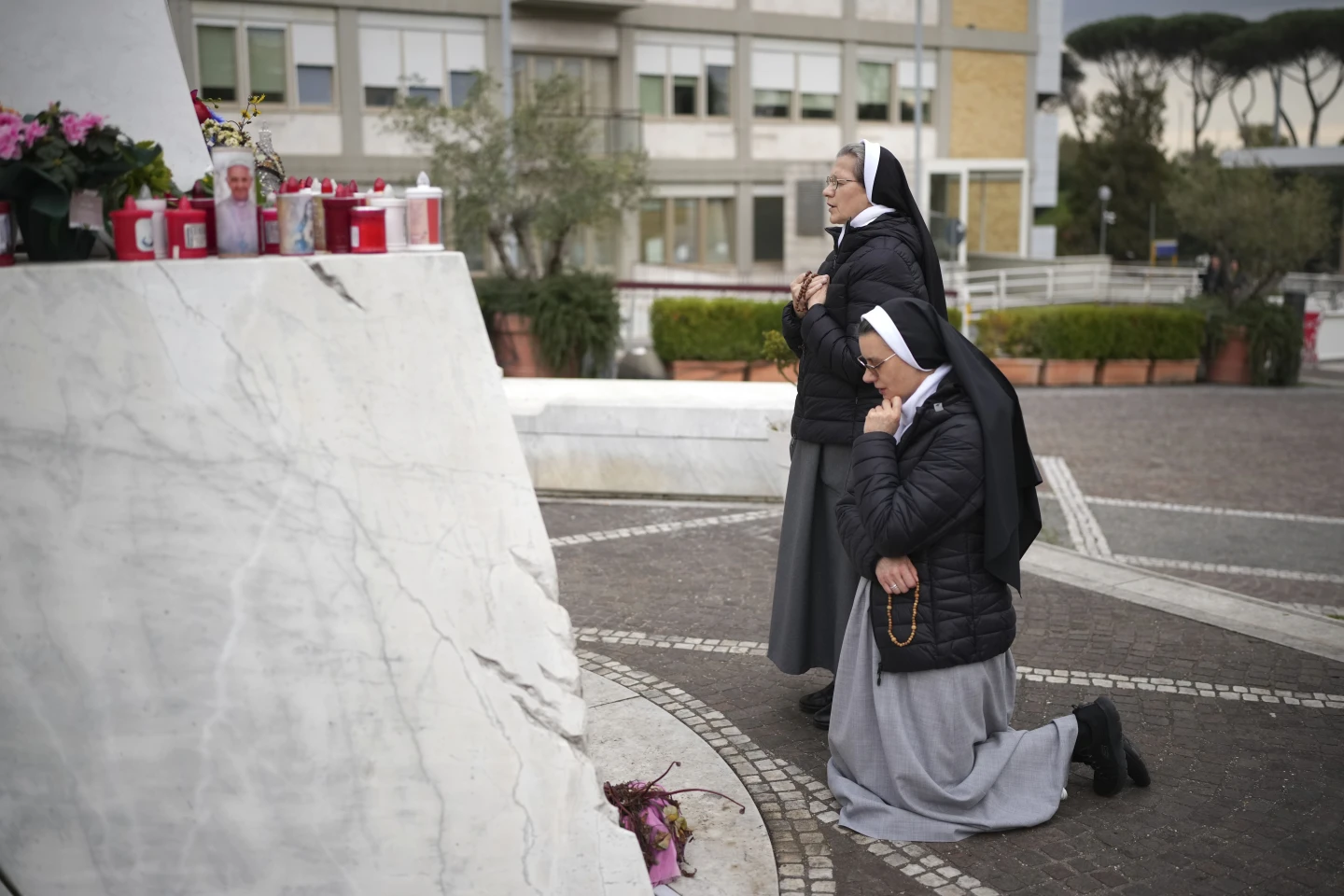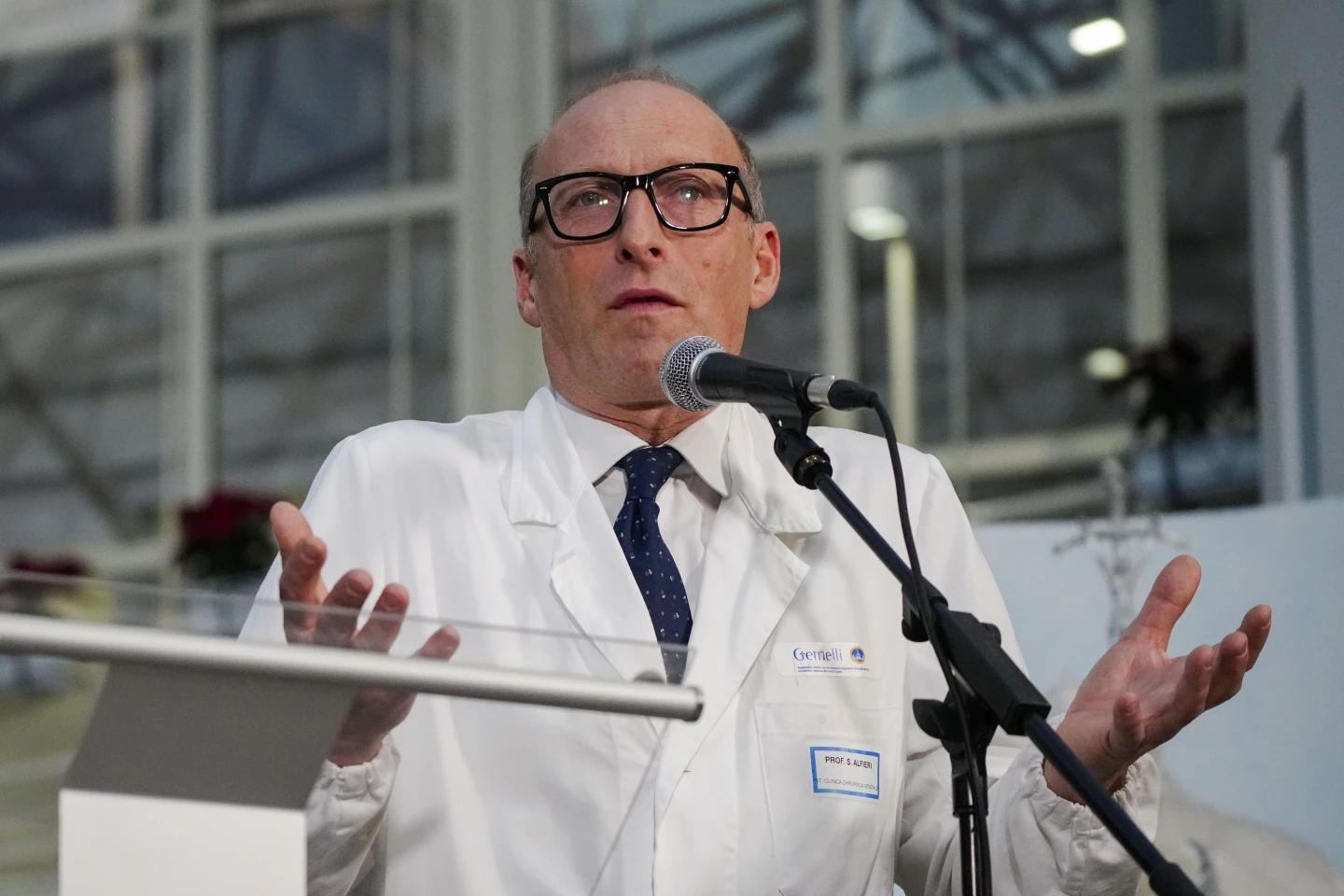Pope Francis was awake but still on high-flow supplemental oxygen on Sunday after a respiratory crisis and blood transfusions, according to the Vatican. He remains in critical condition due to a complex lung infection.
The Vatican’s short statement on Sunday did not mention whether Francis had gotten out of bed or eaten breakfast, as it had on previous days. “The night passed quietly, the pope rested,” it said.
Later, the Vatican said that Francis was still conscious and receiving supplemental oxygen while further tests were being conducted. A more detailed update was expected later in the day.
On Saturday, doctors said the 88-year-old pope, who had part of one lung removed when he was young, was in critical condition after experiencing a long-lasting asthma attack while being treated for pneumonia and a complicated lung infection.
He received “high flows” of oxygen through a nasal tube to help him breathe. Blood transfusions were also given after tests showed his platelets were low. Platelets are needed for clotting.
The Vatican’s update on Saturday also stated that the pope “continues to be alert and spent the day in an armchair although in more discomfort than yesterday.” Doctors described his prognosis as “reserved.”
Given his age, health, and existing lung condition, doctors said his condition is uncertain. This has led to speculation about what might happen if he becomes unconscious or unable to function, and whether he might step down.
Prayers for the Pope at the Vatican
Francis was supposed to lead Mass on Sunday morning in St. Peter’s Basilica and ordain deacons as part of the Vatican’s Holy Year celebrations.
Instead, Archbishop Rino Fisichella, who is organizing the Holy Year, celebrated the Mass in his place and prayed for Francis from the altar before giving the homily the pope had prepared.
“Even though he is in a hospital bed, we feel Pope Francis close to us, we feel him present among us,” Fisichella told the hundreds of deacons dressed in white. “And this makes us pray even more strongly and earnestly, asking the Lord to support him in his time of trial and illness.”

Francis had prepared a message for his Sunday noon prayer, which was read by someone else. The message said he was “confidently continuing my hospitalization at the Gemelli Hospital, carrying on with the necessary treatment; and rest is also part of the therapy!”
He also mentioned the upcoming anniversary of Russia’s invasion of Ukraine, calling it “a painful and shameful occasion for the whole of humanity.”
Sepsis is the Main Threat
Doctors have said that the biggest concern for Pope Francis is the possibility of developing sepsis, a dangerous blood infection that can happen as a complication of pneumonia.
As of Friday, there were no signs of sepsis, and Francis was responding well to the medications he is taking, according to the pope’s medical team in their first detailed update on his health.
Blood tests on Saturday showed that Francis had a low platelet count, a condition called thrombocytopenia or platelopenia. Platelets are small cell fragments in the blood that help form clots to stop bleeding and help wounds heal.
A low platelet count can be caused by various factors, including side effects from medications or infections, according to the U.S. National Institutes of Health.
Francis, who has chronic lung disease and is prone to bronchitis during the winter, was admitted to Gemelli hospital on February 14 after a week of worsening bronchitis.
Doctors initially diagnosed him with a complex combination of viral, bacterial, and fungal infections in his respiratory system, which then led to pneumonia in both lungs. They recommended complete rest and a treatment plan of cortisone, antibiotics, and supplemental oxygen as needed.

The Vatican took action to stop rumors and speculation about Francis possibly resigning
There is no rule in canon law about what to do if a pope becomes unable to make decisions. Francis has said that he has written a resignation letter that would be used if he were unable to make that decision himself due to health reasons.
The Vatican’s secretary of state, Cardinal Pietro Parolin, gave a rare interview to Corriere della Sera to respond to the rumors about a possible resignation.
This came after the Vatican officially denied an Italian media report that claimed Parolin and the pope’s chief canonist had secretly visited Francis in the hospital. Such a meeting would have been important according to canon law for a legitimate resignation, but the Vatican firmly denied that it had taken place.
Parolin called the rumors “useless” and emphasized that the focus should be on the pope’s health, recovery, and return to the Vatican.


